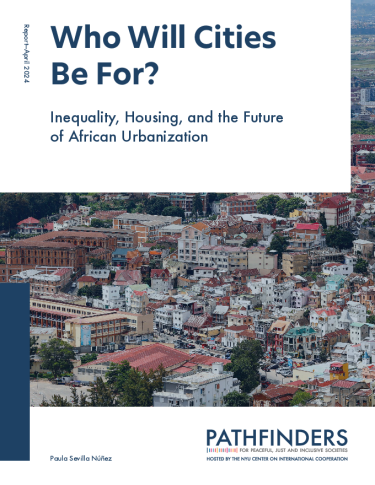As urban areas absorb most of the population growth in the upcoming decades, urbanization presents unique opportunities to transform a society’s economic, social, and political landscape. How cities perform in these dimensions will determine whether societies can become more peaceful, just, and inclusive, and be effectively prepared to respond to future crises.
In an urban age shaped by inequalities, policies on housing can either be a catalyzer of equitable and sustainable development or contribute to a vicious cycle of exclusion that hinders governments’ ability to address today’s global challenges. Approaching the issue of housing from a purely technical lens overlooks its political nature, wherein the tension between ensuring residents’ right to housing and promoting real estate financialization for economic gain encapsulates broader questions such as who belongs in a city, or a society’s vision of its own future. Housing is therefore not just a technical or financial issue, but also one of governance.
Two-thirds of African cities that will exist in 2050 have yet to be built.
Making space to house these new urban residents by building new homes presents an opportunity to do it with a people-centered approach. Effective housing governance requires dismantling past structures that perpetuate exclusionary practices; challenging simplistic narratives of urban glory that end up promoting the financialization of housing; and building coalitions that work for a renewed social contract through access to housing.
